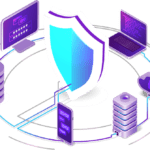
Cyber espionage in international conflicts
The omnipresence of cyber espionage in the news has made one thing very clear: Almost every country is spying on other countries. This type of information warfare is nothing new, but the way it is conducted has changed dramatically in recent years because of our increasing reliance on digital technology. Cyber espionage can be used for a variety of purposes, including stealing trade secrets, gaining an advantage in negotiations, or simply gathering intelligence. As we become more reliant on electronic devices and networks, the risk of cyber attacks will only continue to increase.
What is cyber espionage?
Cyber espionage is the act of stealing or obtaining secret or confidential information by penetrating a computer network or system. The information can be used for economic gain, to damage another’s reputation or to gain an advantage in a competitive market.
Cyber espionage is often carried out by state-sponsored actors, but can also be conducted by individuals or groups with malicious intent. Hackers may use a variety of methods to penetrate a computer network, including social engineering, malware and brute force attacks.
What type of information is stolen with cyber espionage?
Cyber espionage is the theft of trade secrets, classified information, or other sensitive data from computers or networks. The type of information that is stolen depends on the motives of the attackers.
Some attackers may be interested in obtaining military or government secrets. Others may be interested in stealing trade secrets from companies in order to gain a competitive advantage. And still others may be interested in obtaining personal information about individuals for identity theft or other malicious purposes.
Famous examples of cyber espionage
Cyber espionage is the act of conducting espionage or intelligence gathering activities via electronic means. The term covers a range of activities, such as stealing information, sabotaging data or systems, or manipulating or influencing social media.
One of the most famous examples of cyber espionage is the attack on the United States Office of Personnel Management (OPM) in 2015. Hackers compromised the systems of the OPM and stole the personal data of over 21 million people, including detailed background checks and security clearance information.
Another famous example of cyber espionage is the Stuxnet attack on Iran’s nuclear program. Other famous examples include the Edward Snowden leaks and the Sony Pictures hack.
How will cyber attacks be used by the military in the future
Cyber attacks are going to be an increasingly important part of military operations in the future. They offer several advantages over traditional attacks, such as the ability to attack an enemy without risking any casualties.
Cyber attacks are also a lot harder to defend against than traditional attacks. The best way to protect yourself against a cyber attack is to have strong security measures in place, which most businesses and governments do not have so we can expect that this will be a prominent part of military tactics for years to come.
How to get more free content
If you like this article and would like to read more of our content for cybersecurity insights, tips and tricks feel free to follow us on our social media. If you’re a struggling business owner who needs help in assessing their business’s cybersecurity posture feel free to take advantage of our free introductory assessment and we’ll help you figure out a game plan for keeping your company safe.






